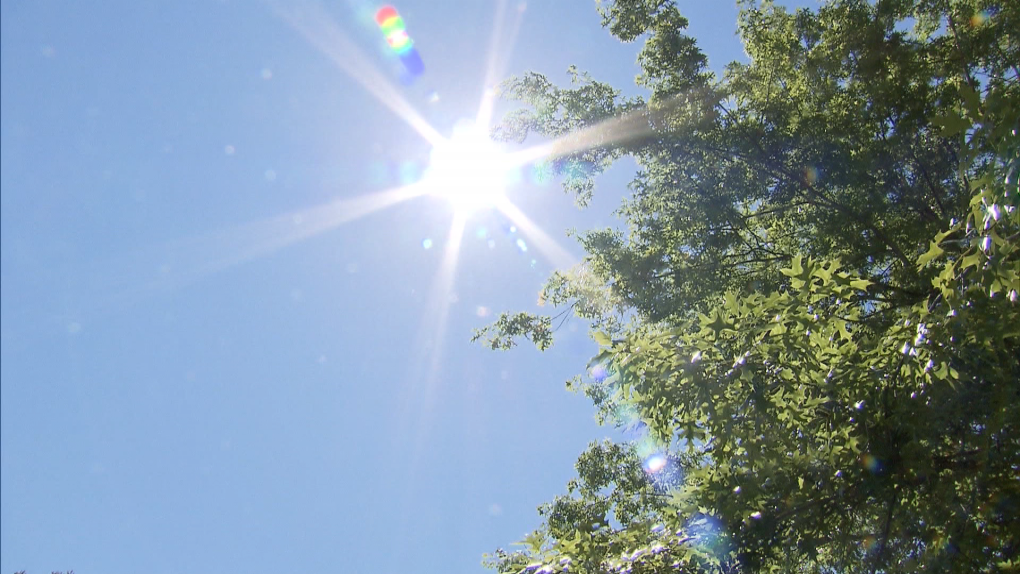B.C. migrant workers suffering through 'excessively hot conditions,' study finds

New research out of the University of British Columbia shows migrant workers are living in extreme heat conditions not compliant with regulations.
Last summer, researchers with the UBC Centre for Climate Justice and Radical Action with Migrants in Agriculture asked 10 migrant workers in the B.C. Okanagan to record temperatures and humidity in their employer-provided rental homes.
The results showed the workers are “plagued by excessively hot conditions without reprieve at their workplace or in their home, throughout the day and overnight,” the authors wrote.
Temperature readings were recorded between Aug. 1 and Sept. 15, 2023. In August, migrant workers noted temperatures as high as 42.8 degrees, far exceeding B.C. Agricultural Council and Western Agricultural Labour Initiative guidelines of 25.5 degrees and 27 degrees, respectively.
The pilot study’s findings also show indoor temperatures consistently surpass outdoor temperatures, leaving workers exposed to extreme heat — both in the fields and greenhouses and when they returned to their housing. While some employers provided air conditioning, it wasn’t the norm — and these workers often met with obstacles and resistance when trying to solve the heat problem themselves.
“We heard stories … about having to walk half an hour up a highway to strip malls in the Okanagan to find an air conditioner, then pay a full day of work salary for it,” says Mohammed Rafi Arefin, assistant professor of geography at UBC and co-author of the study. Even once the workers schlepped those air conditioning units back to the farm, they were sometimes forbidden from using them.
“There was some instances where we heard of the operator or owner asking them to take it out because of electricity bills.”
Crops were in some cases prioritized over the health and safety of the workers. In one instance, a worker asked if they could remove a reflective lining while picking fruit, and put it back when they were done, but was denied. The reflective lining is placed on the ground under fruit trees to make them ripen quicker, but consequently make the surrounding area sweltering for workers.
“There's this sense that employers are adapting, thinking about adaptation in relation to the crops, but not in relation to the workplace,” said Geraldine Pratt, head of geography at UBC and co-author of the study.
The report notes a correlation between hotter summers and loosening of housing inspection guidelines. The temperature threshold for housing inspections increased by 1.5 degrees, while language in the guidelines also became more ambiguous. Acceptable housing temperature range went from being required to be maintained at “all times” in 2016 to “at most times” today.
In B.C., employers are beholden to the guidelines set in place by the Western Agricultural Labour Initiative, and housing inspections are done by the organization pre-season. Employers housing temporary workers are required to indicate “yes” or “no” if they can maintain housing temperatures between 18 degrees and 25.5 degrees while workers are living there.
In 2022, there were just over 70,000 temporary foreign workers working in Canadian agriculture, and more than 10,000 in B.C., according to federal numbers.
Researchers are recommending an overhaul of regulations, including a national standard for migrant worker housing for vulnerable foreign workers. They often have trouble accessing their rights due to the nature of the closed temporary foreign worker permit system, which ties them to their employer for housing and pay for the duration of their time in Canada.
With climate change contributing to worsening, deadly heat waves, and regulations trending to be more lenient, Arefin says an overhaul to the system is desperately needed.
“This is urgent now,” Arefin said. “[Migrant workers are] a key pillar of the provincial food security and really, this group is the front line of this climate crisis, housing crisis and immigration debate in the country.”
CTVNews.ca Top Stories

'Buy nothing': PSAC wants federal workers to boycott downtown Ottawa businesses
A union representing federal employees is asking its members to bring their own lunch to work, in an apparent retaliation against downtown Ottawa businesses as new return-to-office protocols begin.
Actions speak louder: What experts are saying about the body language in the U.S. presidential debate
The highly anticipated debate between Kamala Harris and Donald Trump was a heated matchup. Here's what experts who analyzed the exchange had to say.
Jon Bon Jovi helps talk woman down from ledge on Nashville bridge
Rock and Roll Hall of Famer Jon Bon Jovi and a video production assistant persuaded a woman standing on the ledge of a pedestrian bridge in Nashville to come back over the railing to safety.
Inside a Manitoba ghost town, a group of ladies works to keep it alive
Abandoned homes line the streets of Lauder, a town that's now a ghost of what it once was. Yet inside, a small community is thriving.
B.C. family says razor blades found in bag of frozen blueberries
The B.C. parents of an 11-year-old girl said their daughter recently found a package containing razor blades in a bag of Kirkland-brand frozen blueberries.
Langenburg UFO sighting commemorated with silver coin
Perhaps Saskatchewan's most famous encounter with Unidentified Aerial Phenomenon (UAP/UFO) – "The Langenburg Event" is now being immortalized in the form of a collective coin.
Taylor Swift wins at MTV Video Music Awards and Chappell Roan gets medieval
Taylor Swift and Post Malone took home the first award at the 2024 MTV Video Music Awards, for best collaboration, handed to them by Flavor Flav and Olympian Jordan Chiles.
Man, 70, and woman, 71, found shot dead in Montreal apartment, police
Montreal police (SPVM) are investigating after a man, 70, and woman, 71, were killed by gunshot wounds in an apartment.
Tens of thousands in the dark after Hurricane Francine strikes Louisiana with 100 m.p.h. winds
Hurricane Francine struck Louisiana on Wednesday evening as a Category 2 storm that forecasters warned could bring deadly storm surge, widespread flooding and destructive winds on the northern U.S. Gulf Coast.
































